第134章 CHAPTER XXX.(2)
The brother agreed with her, but, on account of the bloated and discolored condition of the face, asked to have the teeth examined: his poor brother, he said, had a front tooth broken short in two.
This broken tooth was soon found; also a pencil-case, and a key, in the pocket of the deceased. These completed the identification.
Up to this moment the conduct of Richard Martin's relatives and friends had been singularly apathetic; but now all was changed; they broke into loud lamentations, and he became the best of husbands, best of men: his lightest words were sacred. Robert Martin now remembered that "poor Dick" had stood and looked into that little church-yard and said, "If you outlive me, Bob, bury me in this spot; father lies here." So Robert Martin went to the church-warden, for leave to do this last sad office. The church-warden refused, very properly, but the brother's entreaties, the widow's tears, the tragedy itself, and other influences, extorted at last a reluctant consent, coupled with certain sanatory conditions.
The funeral was conducted unobtrusively, and the grave dug out of sight of Gosshawk. But of course it could not long escape observation; that is to say, it was seen by the clerks; but the directors and manager were all seated round a great table upstairs absorbed in a vital question, viz., whether or not the Gosshawk should imitate some other companies, and insure against fire as well as death. It was the third and last discussion; the minority against this new operation was small, but obstinate and warm, and the majority so absorbed in bringing them to reason, that nobody went to the window until the vote had passed, and the Gosshawk was a Life and Fire Insurance. Then some of the gentlemen rose and stretched their legs, and detected the lugubrious enormity.
"Hallo!" cried Mr. Carden, and rang a bell. Edwards, an old clerk, appeared, and, in reply to Mr. Carden, told him it was one of their losses being buried--Richard Martin.
Mr. Carden said this was an insult to the office, and sent Edwards out to remonstrate.
Edwards soon reappeared with Robert Martin, who represented, with the utmost humility, that it was the wish of the deceased, and they had buried him, as ordered, in three feet of charcoal.
"What, is the ceremony performed?"
"Yes, sir, all but filling in the grave. Come and see the charcoal."
"Hang the charcoal!"
"Well," said the humane but somewhat pompous director, "if the ceremony has gone so far--but, Mr. Martin, this must never recur, charcoal or no charcoal."
Mr. Martin promised it never should: and was soon after observed in the church-yard urging expedition.
The sad company speedily dispersed, and left nothing to offend nor disgust the Life and Fire Insurance, except a new grave, and a debt of nine hundred pounds to the heirs or assigns of Richard Martin.
Not very far from this church-yard was a public-house; and in that public-house a small parlor upstairs, and in that parlor a man, who watched the funeral rites with great interest; but not in a becoming spirit; for his eyes twinkled with the intensest merriment all the time, and at each fresh stage of the mournful business he burst into peals of laughter. Never was any man so thoroughly amused in the City before, at all events in business hours.
Richard Martin's executor waited a decent time, and then presented his claim to the Gosshawk. His brother proved a lien on it for L300 and the rest went by will to his wife. The Gosshawk paid the money after the delay accorded by law.